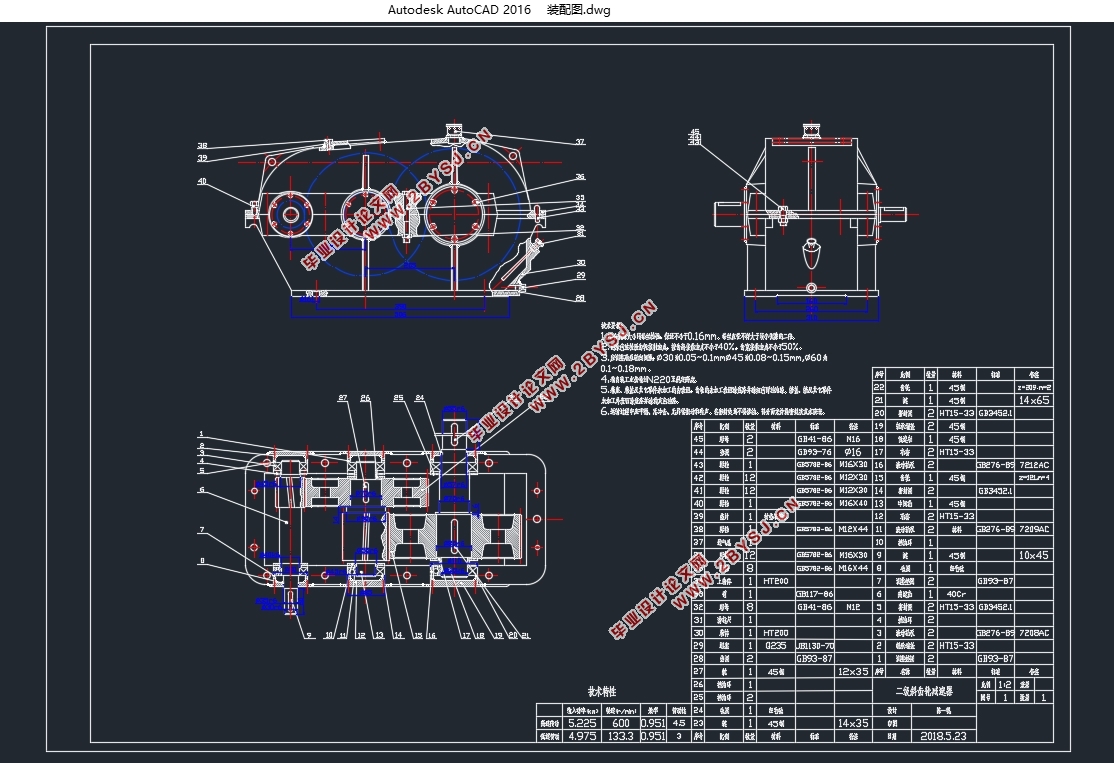结构件数控编程及加工仿真验证(含CAD零件图装配图)
无需注册登录,支付后按照提示操作即可获取该资料.
结构件数控编程及加工仿真验证(含CAD零件图装配图)(任务书,开题报告,论文说明书15000字,CAD图3张,数控程序)
摘 要
结构件是一类具有一定结构,且能承受各向载荷的零件。结构件的应用十分广泛,结构件的数控编程在汽车制造、飞机制造等行业具有重要的意义。飞机结构件是一类薄壁件,且具有自由曲面的外形,因此对加工过程要求较高。在本文中,我们使用UG软件对一个需要进行双面加工的飞机结构件,进行数控编程并生成刀路轨迹,最终生成数控程序。在Vericut中对数控程序进行仿真加工验证。本文中的主要研究工作如下:
查阅有关文献,认识飞机结构件数控加工的原理和基本流程,了解五轴加工在飞机结构件加工中的应用。
分析飞机结构件的几何特征,对本文中所要研究的结构件进行加工阶段的划分,利用UG软件对结构件进行数控编程,生成刀位路径文件。
掌握UG后置处理的使用方法,根据加工所使用的数控机床和控制系统,构建对应的后处理文件,生成数控加工程序。
学习仿真软件Vericut,构建加工仿真环境和刀具文件,通过该软件进行加工仿真,验证数控程序的正确性和完整性,保证加工的安全性,实现设定的加工精度要求。
关键词:飞机结构件 五轴数控加工 数控编程 Vericut 加工仿真
NC programming and simulation verification of structural parts
Abstract
Structural parts are a kind of parts with certain structures and can support load. Structural parts have a wide range of applications in aircraft manufacturing industry. The air structural part has thin walls and some free-form surfaces, so it has higher requirements for NC machining. In this paper, we use UG to conduct numerical control programming and generate the path of the tool, and finally generate the numerical control program for a double-sided machining of the aircraft structural parts. Then the numerical control program is simulated and validated in Vericut. The main works in this paper are as follows:
First, by searching relevant literatures, we have a clear understanding of the principle and basic process of NC machining of aircraft structural parts. Meanwhile, we realize the importance of usage of five-axis machining in the processing of aircraft structural parts.
In this paper, we analyze the geometrical features of airplane structural parts. Then we divide the processing stages of the structural parts. After that, we use UG to program the structural parts and generate the tool path.
Learn the using of post-processing in UG. Considering the NC machine and control system, we create the corresponding post-processing file used in the processing and the NC machining program is following generated.
By using simulation software Vericut, we create a processing environment and the machining tools for structural parts. Then, we can verify the validity and completeness of G-code file. Meanwhile, we can confirm the safety of the processing and prove the processing meeting the requirements of design.
Key word: Air structural part; 5-axis NC machining; NC programming; Vericut; Processing simulation

目 录
摘要 I
Abstract II
第一章 绪论 1
1.1引言 1
1.2课题研究背景和研究意义 2
1.3飞机结构件加工的研究现状 3
1.3.1飞机结构件数控加工技术的应用 3
1.3.2 飞机结构件数控编程技术国内外研究现状 3
1.3.3 数控仿真验证技术的发展现状 4
1.4本章小结 5
第二章 飞机结构件的几何特征和工艺流程 6
2.1 飞机结构件的几何特征 6
2.2 飞机结构件加工规划 7
2.2.1 机床的选择 7
2.2.2加工阶段的划分 7
2.2.3 毛坯的选择 9
2.2.4 加工基准和坐标系的选择 9
2.2.5 刀具的选择 10
2.2.6 切削参数的选择 11
2.3 本章小结 11
第三章 飞机结构件数控加工刀具轨迹规划与生成 12
3.1 飞机结构件双面加工规划 12
3.2 飞机结构件粗加工刀具轨迹规划 12
3.2.1 几何体前期设置 12
3.2.2 飞机结构件整体粗加工 13
3.3 飞机结构件精加工刀具轨迹规划 14
3.3.1 飞机结构件外形精加工 14
3.3.2 飞机结构件筋顶面精加工 15
3.3.3 飞机结构件腹板精加工 15
3.3.4 飞机结构件内形精加工 16
3.3.5 飞机结构件转角精加工 17
3.4本章小结 18
第四章 飞机结构件数控加工的仿真验证 19
4.1 后置处理 19
4.2 数控加工仿真软件Vericut 19
4.3 飞机结构件数控加工仿真验证 20
4.3.1 数控机床模型的构建 20
4.3.2 机床控制系统的选择 21
4.3.3 刀具模型和刀具库的构建 22
4.3.4 添加数控程序 22
4.3.5 仿真验证结果 22
第五章 总结与展望 24
5.1 论文成果总结 24
5.2 经济性评估 24
5.3 展望 25
参考文献 26
致谢 28
